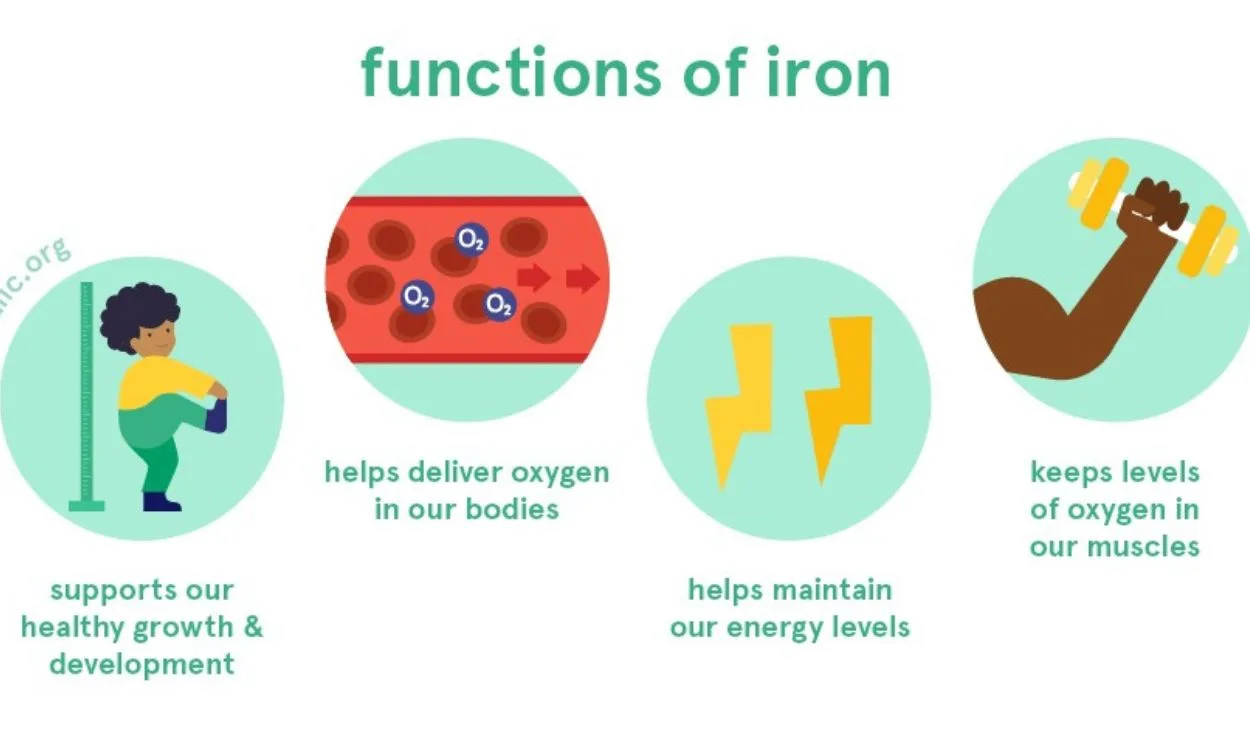What is the Role of Iron in the Body?
Iron is an essential mineral that plays a crucial role in several vital functions of the body. It is a key component of hemoglobin, the protein in red blood cells that carries oxygen from the lungs to the rest of the body. Iron is also involved in various enzymatic reactions, energy production, and immune system function. In this article, we will explore the importance of iron in the body and how it affects our overall health.
Importance of Iron
- Oxygen Transport: One of the primary functions of iron is to transport oxygen throughout the body. Hemoglobin, which contains iron, binds to oxygen in the lungs and releases it to the tissues and organs that need it. Iron deficiency can lead to reduced oxygen-carrying capacity, resulting in fatigue, weakness, and decreased cognitive function.
- Energy Production: Iron is a critical component of the electron transport chain, which generates energy in the form of adenosine triphosphate (ATP) within the cells. Without sufficient iron, the production of ATP is reduced, leading to decreased energy levels and fatigue.
- DNA Synthesis: Iron is involved in the synthesis of DNA, the genetic material present in all cells. It plays a vital role in the growth and development of cells and tissues, especially during periods of rapid growth such as pregnancy, infancy, and adolescence.
- Immune Function: Iron plays a role in the proper functioning of the immune system. It is necessary for the production and activity of immune cells, such as lymphocytes and macrophages, which help defend the body against infections and diseases.
- Brain Function: Iron is essential for the normal development and functioning of the brain. It is involved in the synthesis of neurotransmitters, which are essential for proper communication between nerve cells. Iron deficiency during early childhood can lead to impaired cognitive development and learning difficulties.
Iron Deficiency and Excess
- Iron Deficiency: Iron deficiency occurs when there is an inadequate intake, absorption, or utilization of iron in the body. It is a common nutritional deficiency worldwide, especially among women of reproductive age, children, and individuals following vegetarian or vegan diets. Symptoms of iron deficiency include fatigue, weakness, pale skin, shortness of breath, and impaired cognitive function. Iron deficiency anemia is a more severe form of iron deficiency characterized by low hemoglobin levels and reduced red blood cell production.
- Iron Excess: While iron is essential for the body, excessive iron levels can be harmful. Hemochromatosis, a genetic disorder, causes excessive iron absorption and can lead to iron overload in the body. High iron levels can cause organ damage, particularly in the liver, heart, and pancreas. It is important to maintain a balance and avoid excessive iron supplementation unless prescribed by a healthcare professional.
How to Maintain Healthy Iron Levels
- Dietary Sources: Including iron-rich foods in your diet can help maintain healthy iron levels. Good sources of dietary iron include lean meats, poultry, fish, legumes, tofu, spinach, kale, fortified cereals, and nuts. Consuming vitamin C-rich foods alongside iron-rich foods can enhance iron absorption.
- Iron Supplementation: In cases of iron deficiency or anemia, iron supplementation may be needed. It is important to consult with a healthcare professional before starting any supplementation to determine the appropriate dosage and duration.
- Proper Absorption: Enhancing iron absorption can be achieved by avoiding the consumption of calcium-rich or high-fiber foods alongside iron-rich meals. Tea, coffee, and certain medications can also inhibit iron absorption, so it is advisable to separate their intake from iron-rich meals.
- Regular Blood Tests: Periodic blood tests can help monitor iron levels and detect any deficiencies or imbalances. Consult with a healthcare professional to determine the frequency of blood tests based on individual needs.
Fitpaa – Your Partner in Achieving Health and Fitness Goals
While iron plays a vital role in maintaining overall health, achieving optimal health and fitness requires a comprehensive approach. Fitpaa, an AI-driven metabolism monitoring and management technology, can help you achieve your health and fitness goals with guaranteed results.
Fitpaa uses the latest research in Lifestyle Medicine and Behavioral Therapy to optimize all organ systems and deliver personalized fitness plans. With Fitpaa, you can take a metabolism assessment to identify the root cause of your health condition and receive a personalized Fitpaa Capsule. This capsule combines medical therapy, exercise therapy, nutrition therapy, and cognitive behavioral therapy to optimize your metabolism and help you achieve your goals.
The Fitpaa app provides real-time guidance, habit-building techniques, and a virtual workout trainer to support your journey. Additionally, you’ll have access to a team of fitness coaches, nutritionists, and doctors who will review your progress and make necessary adjustments to ensure you reach your health and fitness goals.
Don’t let iron deficiency or any health condition hold you back from living a healthy, fulfilling life. Download the Fitpaa app now and unlock the potential to achieve your health and fitness goals with guaranteed results. Your well-being is our mission!









